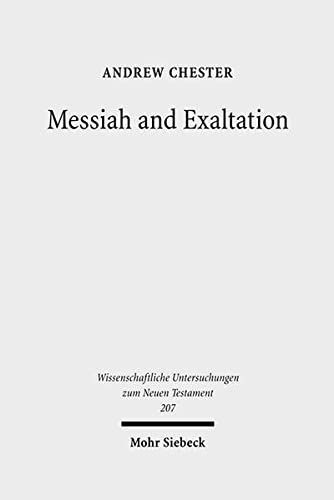
Messiah and Exaltation Jewish Messianic and Visionary Traditions and New Testament Christology
Andrew Chester focuses on Jewish messianic hope, intermediary figures, and visionary traditions of human transformation, particularly in the Second Temple period, and analyzes their significance for the origin and development of New Testament Christology. He brings together five previously published essays on these themes: these include two long chapters, one on Jewish messianic and mediatorial traditions in relation to Pauline Christology, the other on messianism and eschatology in early Judaism and Christianity, plus one on messiah and Temple in Sibylline Oracles 3-5. Two further essays, on the significance of Torah in the messianic age, and on resurrection, transformation and early Christology, have been extensively revised. There are also three substantial new chapters, all of which engage closely with recent scholarly debate. The first, on the origin of Christology, argues for the significance of Jewish visionary traditions of human transformation for understanding how 'high' Christology came about at such an early stage within the New Testament. The second discusses the complex questions of the definition, scope and nature of Jewish messianism, especially in relation to the Hebrew Bible and the more-recently available Qumran evidence, and their significance for the New Testament. The third is concerned with what Paul means by the 'law of Christ', and the wider issues raised by this.